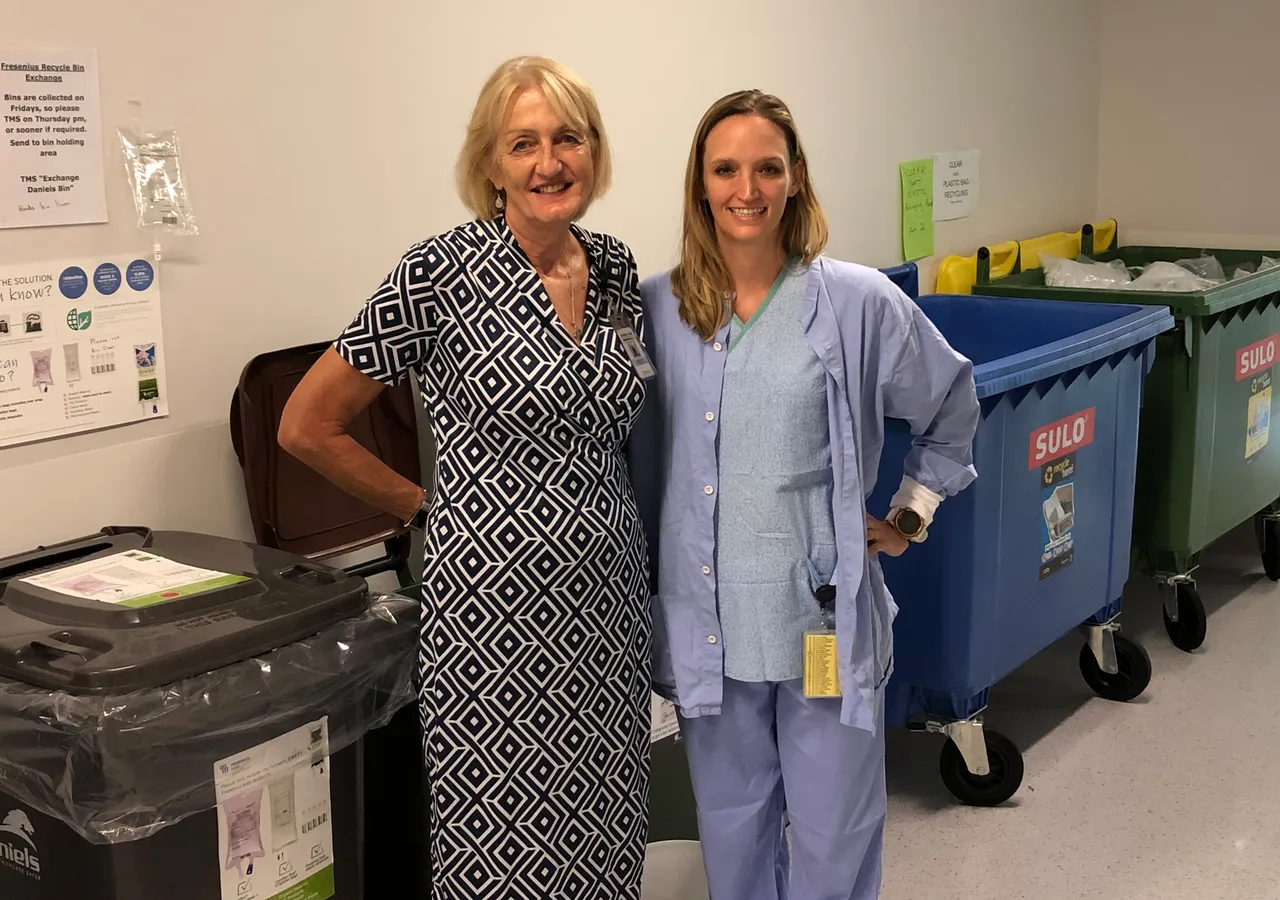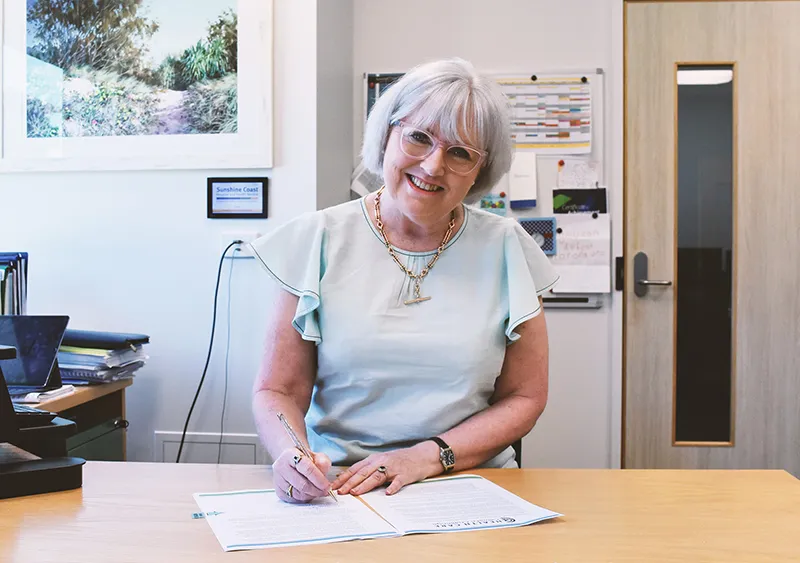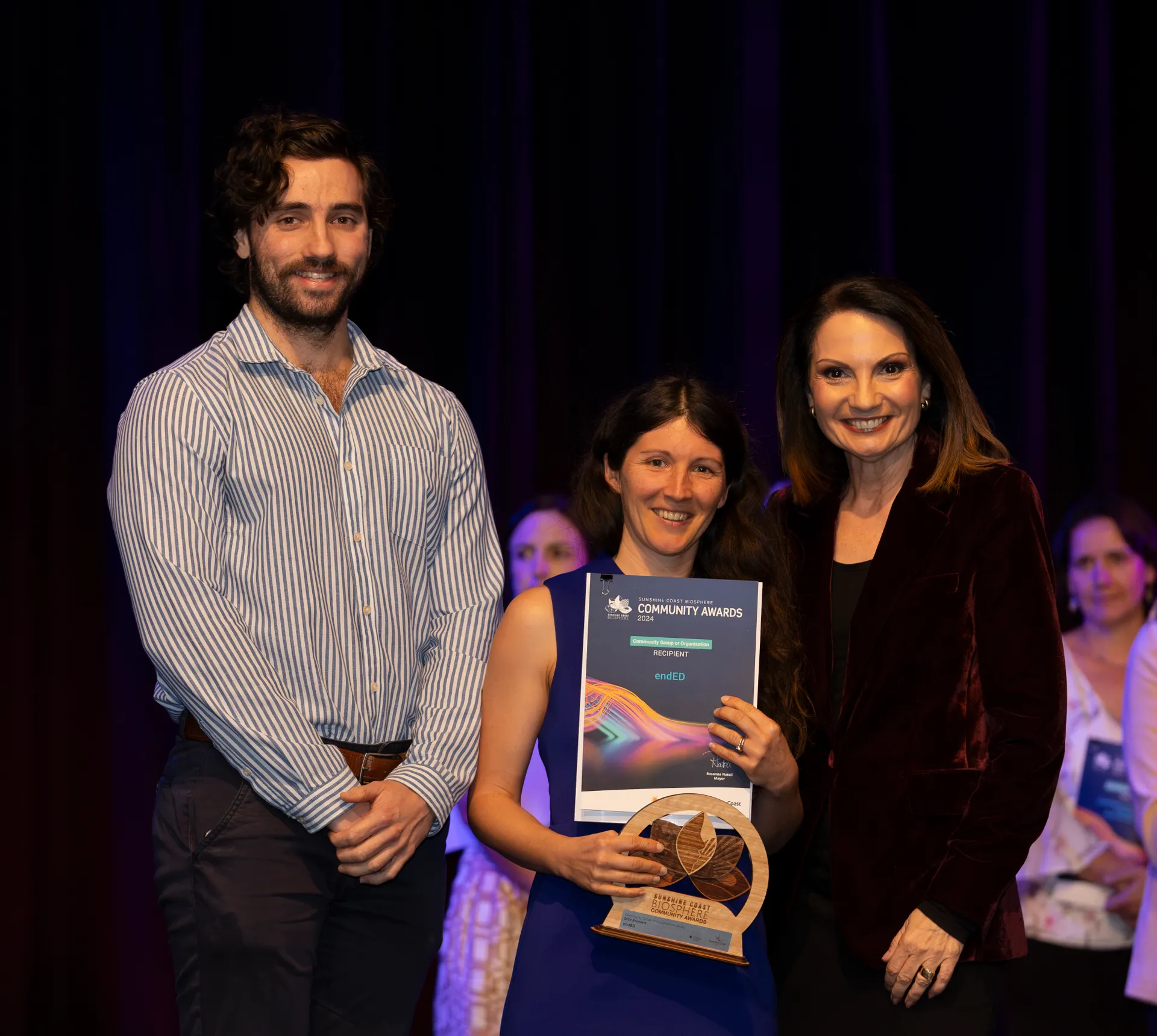Local health service embraces global green challenge

According to the World Health Organisation, hospitals in high income countries like Australia can generate over 3.3 kilograms of rubbish per bed per day. The carbon footprint attributed to the health industry is about 7 per cent of Australia's total.
But the innovative team at Sunshine Coast Hospital and Health Service (SCHHS) is actively pursuing change, with several pioneering programs underway and commitment to a global green hospitals initiative.
Many health services staff are passionate about taking better care of the environment for future generations and a range of strategies have already been implemented, with more on the way.
These include choosing more environmentally friendly products and improving recycling practices across facilities to reduce the service’s environmental footprint.
Waste Warriors and other initiatives
As part of the service’s recycling initiative, more than 50 tonnes of steel, copper, aluminium, brass, soft lead and lead batteries were recycled in 2020, mostly from demolition works associated with Nambour General hospital’s redevelopment.
Single-use surgical instruments and copper diathermy leads used in therapeutic and surgical processes are now being recycled. The copper in the leads is melted and used to make new copper products, such as copper piping, while aluminium will make cans, balustrading, roofing and other materials. The steel is processed and shipped overseas to be melted down and reused for construction and manufacturing.
An SCHHS Environmental Sustainability Committee with associated working groups for Cigarette Litter and Waste Management was established in 2019. The committee is working to support the Queensland Government’s vision for a zero-waste society, and more efficient use of energy, water, transport and infrastructure.
Reducing the environmental impact of health care: Global Green and Healthy Hospitals
In July last year, SCHHS joined the Global Green and Healthy Hospitals (GGHH) ‘an international network of hospitals, health care facilities, health systems, and health organizations dedicated to reducing their environmental footprint and promoting public and environmental health’. So far, around 80 organisations across Australia have joined the initiative.
SCHHS Chief Executive Adjunct Professor Naomi Dwyer said the Environmental Sustainability Committee was eager for the health service to join GGHH, to connect with other like-minded organisations around the world.
“The Global Green and Healthy Hospitals has a community of more than 1,350 members in 72 countries who represent more than 43,000 hospitals and health centres, all working to reduce the environmental footprint of healthcare services,” A/Prof Dwyer said.
“The vibrant international community of GGHH is among the leaders in the health sector who know that sustainability is essential to a healthy planet.”
The Global Green and Healthy Hospitals Agenda provides a comprehensive framework for hospitals and health systems to achieve greater sustainability through 10 interconnected sustainability goals and associated action items. SCHHS is focused initially on the goals of leadership and waste.

Climate change leadership
SCHHS has also joined the GGHH “Health Care Climate Challenge”. Together with other hospitals, health care facilities and health systems, SCHHS is committed to doing its part to meet the challenges posed by climate change through the three pillars of the pledge:
- Mitigation – Reducing health care’s carbon footprint and/or fostering low carbon health care.
- Resilience – Preparing for the impacts of extreme weather and the shifting burden of disease.
- Leadership – Educating staff and the public while promoting policies to protect public health from climate change.
The next steps involve establishing baseline data as a reference point against which future emissions will be measured, and sharing case studies on climate mitigation, resilience and leadership efforts.
The organisation’s Environmental Sustainability Committee has broad representation to develop and lead environmental strategies across all facilities. Staff are empowered to identify areas for improvement and take on leadership roles within their own departments. Champions commit to driving forward reduce, reuse and recycle strategies outside of their already demanding day jobs.
Do you know of an individual or organisation on the Sunshine Coast doing innovative things in the sustainability space? We would love to hear about it in the comments below.









